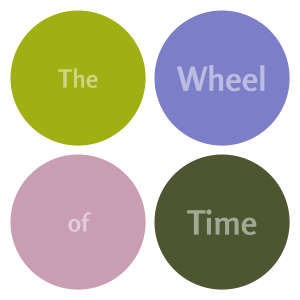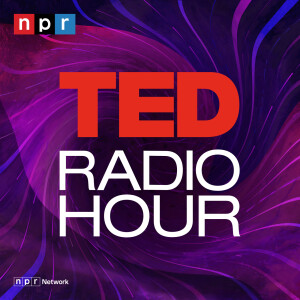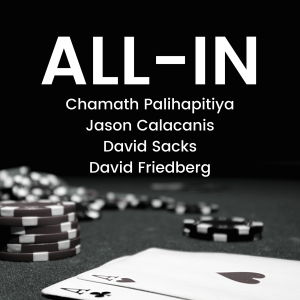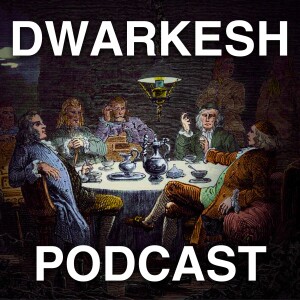

Dwarkesh Podcast
https://api.substack.com/feed/podcast/69345.rssEpisode List
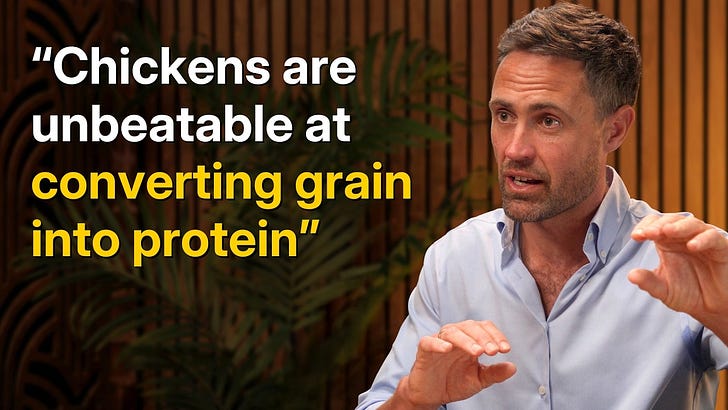
The surprising economics of the meat industry – Lewis Bollard
A deep dive with Lewis Bollard, who leads Open Philanthropy’s strategy for Farm Animal Welfare, on the surprising economics of the meat industry.Why is factory farming so efficient? How can we make the lives of the 23+ billion animals living on factory farms more bearable? How far off are the moonshots (e.g., brainless chickens, cultivated meats, etc.) to end this mass suffering? And why does the meat industry have such a surprising amount of political influence?For decades, innovation in the meat industry has actually made the conditions for animals worse. Can the next few decades of tech reverse this pattern?Watch on YouTube; listen on Apple Podcasts or Spotify.Donation match fundraiserThe welfare of animals on factory farms is so systemically neglected that just $1 can help avert 10 years of animal suffering.After learning more about the outsized opportunities to help, I decided to give $250,000 as a donation match to farmkind.giving/dwarkesh. FarmKind directs your contributions to the most effective charities in this area.Please consider contributing, even if it’s a small amount. Together, we can double each other's impact and give a total of $500,000.Bluntly, there are some listeners who are in a position to give much more. Given how neglected this topic is, one such person could singlehandedly change the game for 10s of billions of animals. If you’re considering donating $50k or more, please reach out directly to Lewis and his team by emailing andres@openphilanthropy.org.Timestamps(00:00:00) – The astonishing efficiency of factory farming(00:07:18) – It was a mistake making this about diet(00:09:54) – Tech that’s sparing 100s of millions of animals/year(00:16:16) – Brainless chickens and higher welfare breeds(00:28:21) – $1 can prevent 10 years of animal suffering(00:37:26) – Situation in China and the developing world(00:41:41) – How the meat lobby got a lock on Congress(00:53:23) – Business structure of the meat industry(00:57:42) – Corporate campaigns are underrated Get full access to Dwarkesh Podcast at www.dwarkesh.com/subscribe

Sarah Paine: How Imperial Japan Defeated Tsarist Russia & Qing China
After my last lecture series with Sarah Paine ended, I still had so many questions. I knew we’d only scratched the surface of Sarah’s scholarship, so I immediately invited her back for another series: she graciously agreed, and we’ll be releasing the results online over the coming weeks and months!This first lecture is focused on the balance of power in East Asia at the turn of the 20th century. Specifically, how did Japan (population 47M) defeat China (400M) and Russia (130M) to become Asia's dominant power?For me, the most interesting thing was that Japan's surprise attack on Port Arthur at the beginning of the Russo-Japanese War (1904) helps us understand why Japan might have thought Pearl Harbor would work.Watch on YouTube; listen on Apple Podcasts or Spotify.Sponsors* Google’s Veo 3 helps us visualize the hypothetical scenarios that often come up during our interviews. Veo’s ability to generate both video and audio—all with incredible realism—makes it perfect for bringing our content to life. If you have a Google AI Pro or Ultra plan, you can try it in Gemini today by visiting gemini.google.* Hudson River Trading is one of the world's top quantitative trading firms. Responsible for around 15% of all U.S. equities trading volume, HRT powers their trades with cutting-edge deep learning models. Their in-house AI team does fundamental ML research and then applies it to some of the most competitive markets in the world. If you’re interested in joining them, you can learn more at hudsonrivertrading.com/dwarkesh.To sponsor a future episode, visit dwarkesh.com/advertise.Timestamps(00:00:00) – Japan’s Meiji reforms(00:14:44) – Trans-Siberian railway & Japan’s 3-year window for empire(00:29:58) – The most important battle in the Russo-Japanese war(00:48:38) – China’s implosion: imperialism, civil wars, and opium(00:59:31) – Was Russia on track to dominate Asia?(01:14:20) – Pearl Harbor (1941) vs surprise attack of Port Arthur (1904)(01:34:03) – Why big countries still lose wars(01:46:56) – Grand strategy for small countries Get full access to Dwarkesh Podcast at www.dwarkesh.com/subscribe

Stephen Kotkin — How Stalin Became the Most Powerful Dictator in History
The Stephen Kotkin episode. Kotkin is arguably the world’s foremost expert on Joseph Stalin and has written a massive 2-volume biography on him (with a 3rd volume in the works).No other individual had more of a profound impact on the 20th century than Stalin. He held the power of life and death over every single person across 11 time zones, and he killed tens of millions of people, utterly consumed by an ideology aimed at building paradise on Earth.And, he was one half of the biggest and most consequential military confrontation in history (even if Hitler didn’t prove to be his match).Watch on YouTube; listen on Apple Podcasts or Spotify.Sponsors* Lighthouse is THE fastest immigration solution for the technology industry. All they need is your resume or LinkedIn profile to tell you which visas you’re most eligible for, and they’ll send you this eligibility document for free, no commitment required. Get started today at https://www.lighthousehq.com/ref/Dwarkesh.To sponsor a future episode, visit dwarkesh.com/advertise.Timestamps(00:00:00) – Was the tsarist regime the lesser of 2 evils?(00:23:45) – The peasants brought Lenin to power, then he enslaved them(00:37:38) – Why did so many go along with enforced famine and the Great Terror?(01:02:26) – Today’s leftist civil war(01:13:01) – Doesn’t CCP deserve credit for China's growth?(01:35:13) – Why didn't somebody just kill Stalin?(01:52:45) – Overcoming the pathologies of communism with tech: USSR vs China Get full access to Dwarkesh Podcast at www.dwarkesh.com/subscribe

Why I don’t think AGI is right around the corner
I’ve had a lot of discussions on my podcast where we haggle out timelines to AGI. Some guests think it’s 20 years away - others 2 years. Here’s an audio version of where my thoughts stand as of June 2025. If you want to read the original post, you can check it out here. Get full access to Dwarkesh Podcast at www.dwarkesh.com/subscribe

George Church — A Billion Years of Evolution in a Single Afternoon
George Church is the godfather of modern synthetic biology and has been involved with basically every major biotech breakthrough in the last few decades.Professor Church thinks that these improvements (e.g., orders of magnitude decrease in sequencing & synthesis costs, precise gene editing tools like CRISPR, AlphaFold-type AIs, & the ability to conduct massively parallel multiplex experiments) have put us on the verge of some massive payoffs: de-aging, de-extinction, biobots that combine the best of human and natural engineering, and (unfortunately) weaponized mirror life.Watch on YouTube; listen on Apple Podcasts or Spotify.Sponsors* WorkOS Radar ensures your product is ready for AI agents. Radar is an anti-fraud solution that categorizes different types of automated traffic, blocking harmful bots while allowing helpful agents. Future-proof your roadmap today at workos.com/radar.* Scale is building the infrastructure for smarter, safer AI. In addition to their Data Foundry, they recently released Scale Evaluation, a tool that diagnoses model limitations. Learn how Scale can help you push the frontier at scale.com/dwarkesh.* Gemini 2.5 Pro was invaluable during our prep for this episode: it perfectly explained complex biology and helped us understand the most important papers. Gemini’s recently improved structure and style also made using it surprisingly enjoyable. Start building with it today at https://aistudio.google.comTo sponsor a future episode, visit dwarkesh.com/advertise.Timestamps(0:00:00) – Aging solved by 2050(0:07:37) – Finding the master switch for any trait(0:19:50) – Weaponized mirror life(0:30:40) – Why hasn’t sequencing/synthesis led to biotech revolution?(0:50:26) – Impact of AGI on biology research progress(1:00:35) – Biobots that use the best of biological and human engineering(1:05:09) – Odds of life in universe(1:09:57) – Is DNA the ultimate data storage?(1:13:55) – Curing rare diseases with genetic counseling(1:22:23) – NIH & NSF budget cuts(1:25:26) – How one lab spawned 100 biotech companies Get full access to Dwarkesh Podcast at www.dwarkesh.com/subscribe
Create Your Podcast In Minutes
- Full-featured podcast site
- Unlimited storage and bandwidth
- Comprehensive podcast stats
- Distribute to Apple Podcasts, Spotify, and more
- Make money with your podcast







